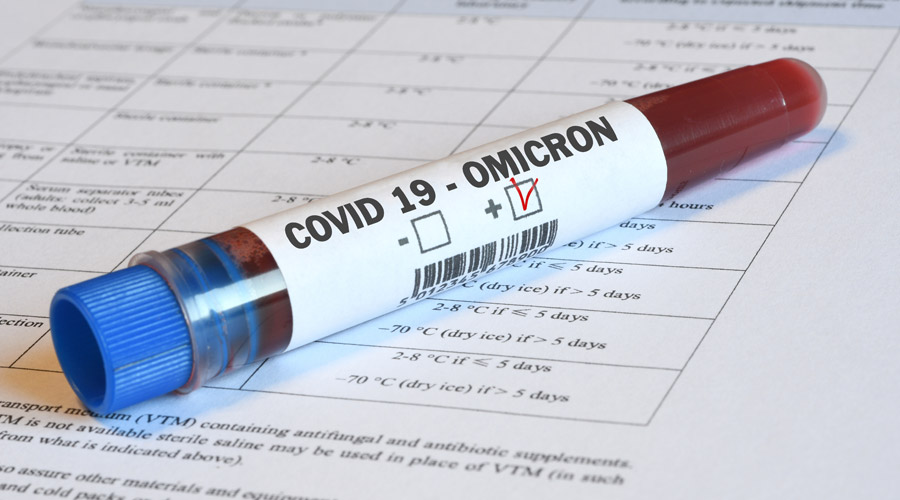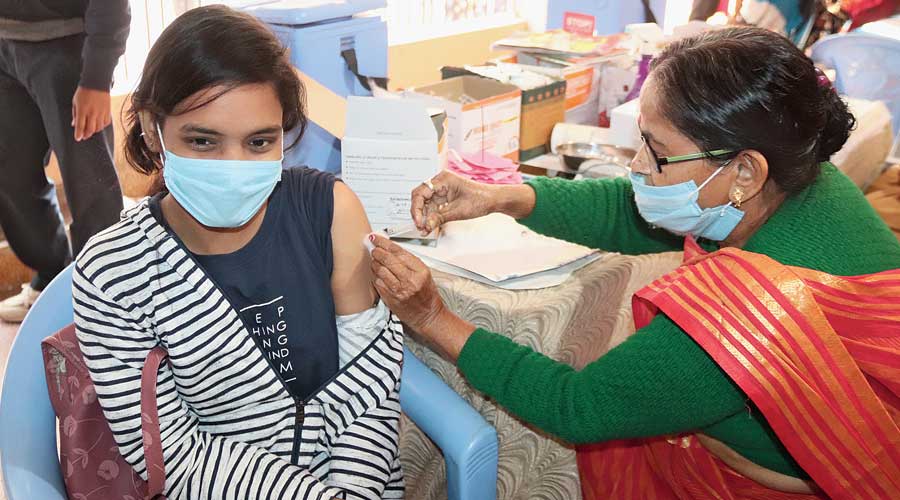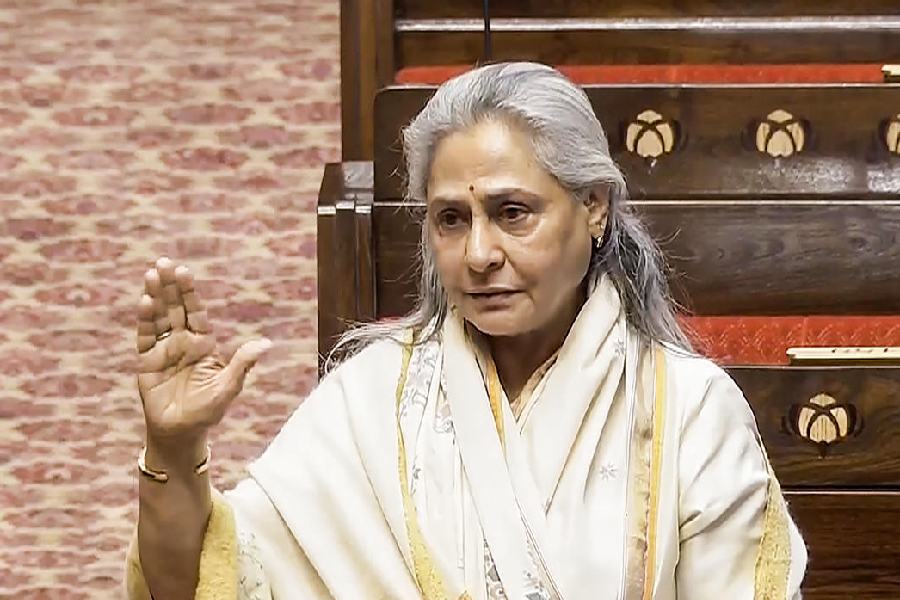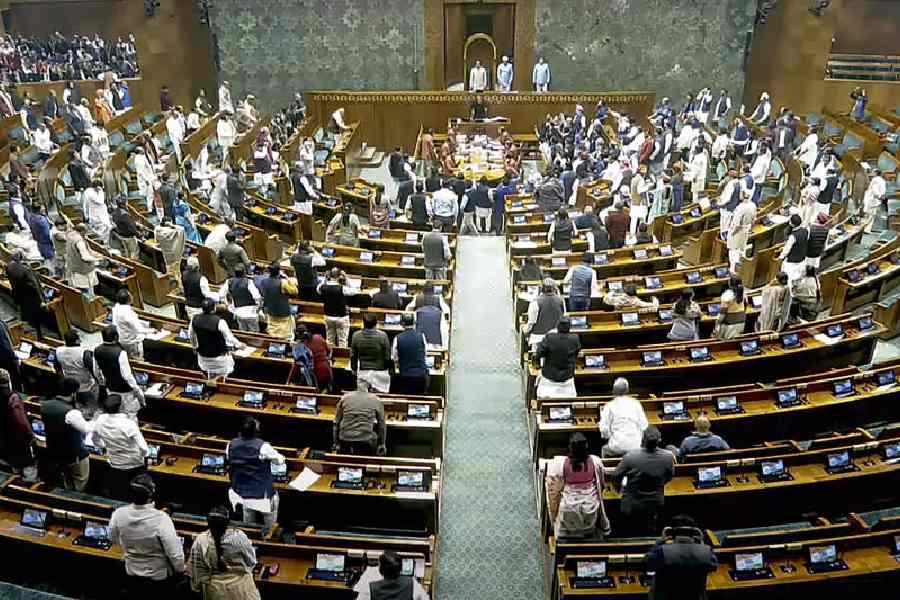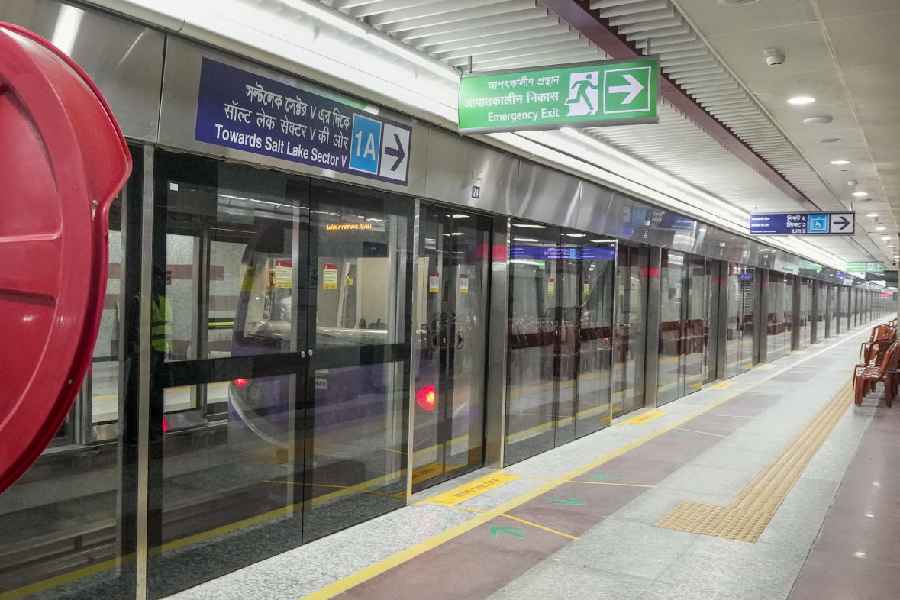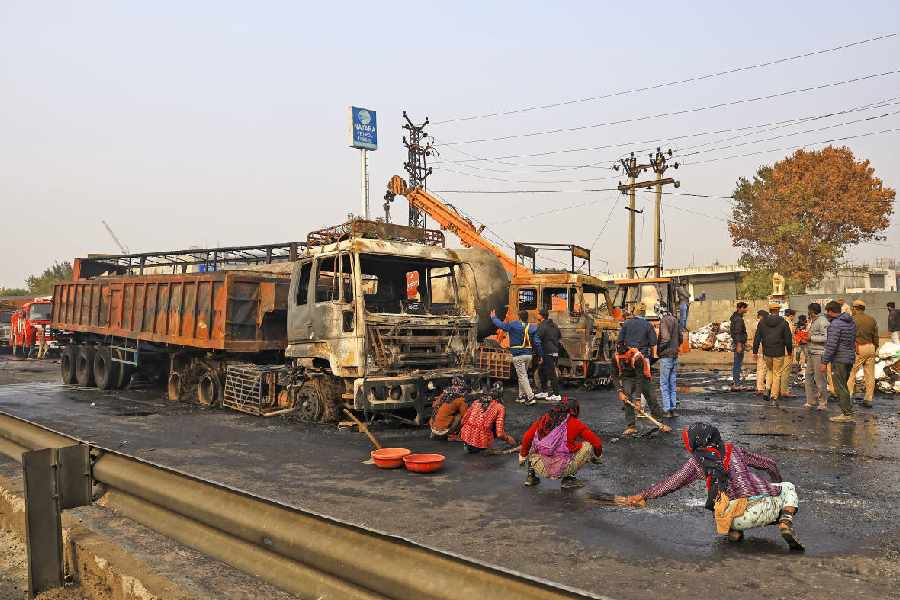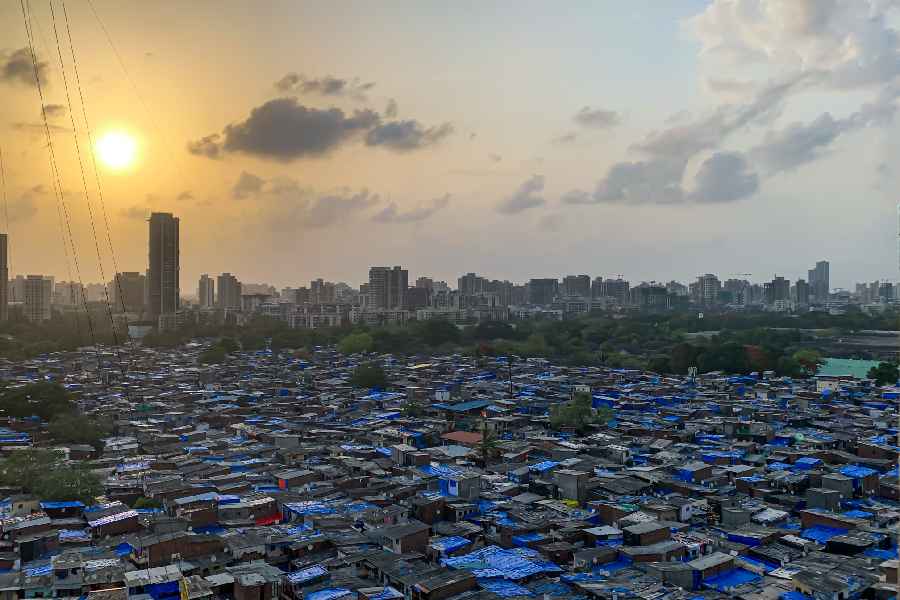India’s Covid-19 infections are already growing faster than they did during even the peak of the country’s second wave, health officials said on Wednesday amid a nationwide surge and troubling signs of simultaneous runaway epidemics in multiple states.
The Union health ministry has listed Bengal among at least eight “emerging states of concern” with two-fold to 13-fold increases in new infections over the past week, while Rajasthan on Wednesday recorded India’s first death linked to the omicron variant.
Health authorities are also worried at sharp jumps in test positivity rates that mark large epidemics. The number of districts where the positivity rates now exceed 10 per cent has increased to 28 from only five last week.
Calcutta, Howrah, West Burdwan, North and South 24-Parganas and Birbhum are among the 28 districts. The others are in Mizoram (eight), Maharashtra (four), two each in Goa, Haryana and Arunachal Pradesh, and one each in Delhi, Jharkhand, Punjab and Himachal Pradesh.
“The acceleration of cases is steeper than ever,” said Vinod Paul, the chair of the national Covid-19 task force and member (health) at Niti Aayog, citing R, a measure of how fast infections are spreading. “The R has risen to 2.69. This is higher than the 1.69 we saw during the second wave at peak,” Paul said.
The 2.69 R value implies that 100 Covid-infected people will lead to 269 new infections and is in line with exponential epidemic growth worldwide fuelled by the hyper-transmissible omicron.
The weekly new infection count has increased over eight-fold in Bengal, from around 3,800 during the week ending December 29 to over 32,000 during the week ending January 5.
The weekly counts have grown five-fold in Gujarat (1,250 to 7,300), seven-fold in Maharashtra (10,000 to 69,000), 11-fold in Delhi (1,760 to 19,500) and 13-fold in Jharkhand (560 to 7,800). Karnataka, Kerala and Tamil Nadu are other states of concern marked by infection surges.
While infection counts are now growing faster than they did during the second wave fuelled by the delta variant in April-May 2021, health officials say, hospitalisation rates under the current omicron wave appear for the moment relatively lower.
In both Delhi and Mumbai, the current hospitalisation rates are about 5 per cent, Paul said. In comparison, the hospitalisation rates during 2020 and 2021 were about 20 per cent, he said.
However, sections of doctors in Delhi and Mumbai — cities presumed to be experiencing omicron-driven surges — said they would wait at least until mid-January to make inferences on how omicron might impact the demand for hospital beds.
“To say anything about hospitals or oxygen demand now is premature. It is only when the size of the epidemic grows beyond certain thresholds that we can make clear assessments of how we’re going to be impacted,” said a physician in Mumbai.
Health experts have cautioned that the demand for hospital resources will depend on how fast new infections emerge. Even if a small fraction of infected patients require hospital care, a dramatic rise in infections could quickly overwhelm hospitals.
A 73-year-old man in Rajasthan who had diabetes, high blood pressure and hypothyroidism and died from pneumonia on December 31 has marked the country’s first documented omicron-infected death, a state health official said on Wednesday.
The man had tested negative for Covid-19 on December 21 and again on December 25. But genome sequencing on his sample revealed omicron, a PTI report said, quoting health officials in Rajasthan.

